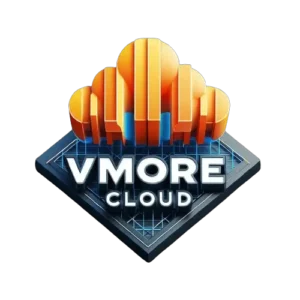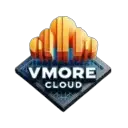Introduction to Virtualization Platforms
Virtualization has revolutionized the way we manage and utilize computing resources. By creating virtual versions of physical hardware, such as servers, storage, and networks, virtualization platforms allow us to maximize efficiency, reduce costs, and enhance the overall flexibility of our IT infrastructure.
Table of Contents
What is Proxmox?
Proxmox is an open-source virtualization platform based on Debian Linux. It offers a comprehensive solution for managing virtual machines (VMs) and containers, using the Kernel-based Virtual Machine (KVM) and Linux Containers (LXC) technologies. Proxmox is known for its flexibility, scalability, and ease of use, making it a popular choice for both personal and small-to-medium-sized business deployments.

Understanding Proxmox
Proxmox is an open-source virtualization platform that offers a comprehensive solution for managing virtual machines (VMs) and containers. Built on Debian Linux, Proxmox provides a user-friendly web interface and a command-line interface for seamless administration. It supports a wide range of operating systems, including Windows, Linux, and various distributions of the latter.
What is ESXi?
ESXi, short for Elastic Sky X Integrated, is a proprietary hypervisor developed by VMware. It is a bare-metal hypervisor, which means it runs directly on the physical hardware, without the need for an underlying operating system. ESXi is designed to provide a robust and efficient virtualization platform, catering to the needs of enterprise-level organizations.

Understanding ESXi
ESXi, on the other hand, is a proprietary virtualization platform developed by VMware, a leading provider of virtualization solutions. ESXi is known for its robust performance, enterprise-level features, and tight integration with the VMware ecosystem. It offers a streamlined user interface and advanced management tools, making it a popular choice for businesses of all sizes.
Features and Capabilities of ESXi
ESXi offers a wide range of features and capabilities that cater to the needs of enterprise-level organizations. Some of the key features include:
- Advanced resource management: ESXi provides advanced resource management tools, allowing users to optimize the allocation of CPU, memory, and storage resources.
- High availability and fault tolerance: ESXi supports features like High Availability (HA) and Fault Tolerance (FT), ensuring the continuity of critical workloads in the event of hardware failures.
- Robust storage management: ESXi integrates with various storage technologies, including Fibre Channel, iSCSI, and Network File System (NFS), providing flexible and scalable storage solutions.
- Comprehensive backup and disaster recovery: ESXi seamlessly integrates with VMware’s suite of backup and disaster recovery tools, ensuring the protection of your virtual infrastructure.
- Extensive ecosystem and integration: ESXi is deeply integrated with the VMware ecosystem, allowing for seamless integration with other VMware products and third-party tools.
Pros and Cons of Proxmox
Pros of Proxmox:
- Open-source and free to use
- Supports a wide range of operating systems
- Offers built-in high availability and live migration
- Provides a user-friendly web-based interface
- Flexible and customizable
Cons of Proxmox:
- May require more technical expertise for advanced configurations
- Limited integration with enterprise-level tools and services
- Lacks some of the advanced features found in ESXi
Pros and Cons of ESXi
Pros of ESXi:
- Enterprise-level features and robust performance
- Tight integration with the VMware ecosystem
- Streamlined and intuitive user interface
- Comprehensive backup and disaster recovery options
- Extensive support and resources available
Cons of ESXi:
- Proprietary solution, requiring a paid license
- Limited customization options compared to Proxmox
- Steeper learning curve for beginners
Proxmox vs ESXi: Feature Comparison
When it comes to features, both Proxmox and ESXi offer a wide range of capabilities. Proxmox boasts support for containers, high availability, and live migration, while ESXi excels in areas like storage management, disaster recovery, and integration with VMware’s suite of tools.
| Feature | Proxmox | ESXi |
| Virtualization Technology | KVM and LXC | ESXi Hypervisor |
| Supported Operating Systems | Windows, Linux, BSD | Windows, Linux, BSD |
| High Availability | Yes | Yes |
| Live Migration | Yes | Yes |
| Storage Management | ZFS, LVM, iSCSI, NFS | VMFS, NFS, iSCSI, FC |
| Backup and Disaster Recovery | Integrated solution | Integration with VMware tools |
| Networking | Bridging, Bonding, VLANs | Distributed Switches, VLANs |
Performance Comparison between Proxmox and ESXi
When it comes to performance, both Proxmox and ESXi are highly capable virtualization platforms. However, the specific workload and hardware configuration can impact the performance of each platform. In general, ESXi is known for its optimized hypervisor and tight integration with VMware’s ecosystem, which can result in slightly better performance for certain workloads. Proxmox, on the other hand, offers more flexibility and customization options, which can be beneficial for specific use cases.
Ease of Use and User Interface Comparison
The user interface and overall ease of use are crucial factors when choosing a virtualization platform, especially for beginners. Proxmox offers a web-based interface that is intuitive and user-friendly, making it easier for newcomers to navigate and manage their virtual environments. ESXi, while more complex, provides a streamlined interface that is well-suited for enterprise-level deployments and experienced administrators.
Cost Comparison between Proxmox and ESXi
One of the significant differences between Proxmox and ESXi is the cost. Proxmox is an open-source platform, which means it is available for free. ESXi, on the other hand, is a proprietary solution, and users need to purchase a license to use it. The cost of ESXi can vary depending on the edition and the number of hosts you need to manage.
Choosing the Right Virtualization Platform for Your Needs
When it comes to choosing the right virtualization platform for your needs, there is no one-size-fits-all solution. It’s essential to consider factors such as your IT infrastructure, the type of workloads you need to run, your budget, and the level of support and resources you require.If you’re looking for a cost-effective, flexible, and open-source solution, Proxmox might be the better choice. However, if you prioritize enterprise-level features, tight integration with VMware’s ecosystem, and a more streamlined user experience, ESXi could be the more suitable option.
Migrating from Proxmox to ESXi
Migrating from one virtualization platform to another can be a complex and time-consuming process, but it’s not impossible. Both Proxmox and ESXi offer tools and resources to assist with the migration process, ensuring a smooth transition for your virtual machines and containers.
Conclusion
In the end, the choice between Proxmox and ESXi ultimately depends on your specific needs, budget, and the level of technical expertise within your organization. If you’re looking for a cost-effective, flexible, and open-source solution, Proxmox might be the better fit.
However, if you prioritize enterprise-level features, tight integration with the VMware ecosystem, and a more streamlined user experience, ESXi could be the more suitable option.
To help you determine the right virtualization platform for your needs, I recommend exploring the resources and documentation provided by both Proxmox and VMware. You can also consider reaching out to their respective support teams or consulting with IT professionals who have experience with these platforms.
By carefully evaluating your requirements and the unique features of each solution, you’ll be well on your way to making an informed decision that aligns with your business goals and IT infrastructure.
Click here to read more about Proxmox


